1-Line Summary: The Power Of Positive Thinking by Norman Vincent Peale helps you realize that when thoughts are combined with the power of faith, you open up doors to a successful and happy life.
Who is this summary for?
- This summary is for people who have faith in God and think that God can help them overcome their obstacles in life.
- In case you don’t believe in God, you will learn how faith when combined with the right thinking can help you achieve success in life.
- Or if you are someone who wants to learn about The Law Of Attraction, you will enjoy reading this book summary.
- Anyone who just wants to understand the power of faith and wants to learn about the functioning of the mind, in general, will also find this summary useful.
- If you liked reading The Secret by Rhonda Byrne, then you will also love this.
Why you should read this summary?
Your thoughts determine the kind of life you will live.
So knowing how both positive and negative thoughts affect your mind becomes important for everyone.
This summary will help you realize the power of faith and prayers.
And much more!
The Power Of Positive Thinking Summary [PDF]
In this book summary, I’ve shared the best lessons I learned from this book.
So let’s not waste any more time and dive right in!
Lesson #1: Try not to lose your self-confidence
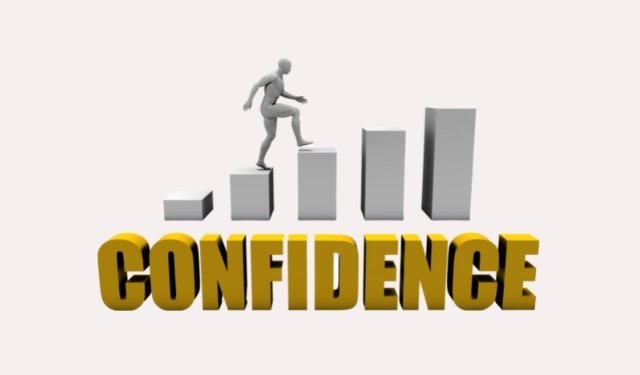
Our belief system constructs our mindset.
If you have wrong beliefs, you will fail eventually.
And if you have the right beliefs, you will succeed sooner or later.
There are lots of other factors too.
But whatever you do in your life is affected by your belief system.
Most people struggle all their life and never overcome their lack of self-confidence.
Ever thought why?
Because they don’t have belief in themselves that they can overcome it.
Yes, it’s that simple.
But it’s hard to implement.
Why?
Because beliefs are not something you can change easily.
Right from your childhood, you develop beliefs about yourself and this world.
But often they are a mix of both good and bad beliefs.
Good beliefs help you in your journey and bad beliefs pull you back and make you powerless.
It’s simple:
Good beliefs give you power. While bad beliefs take away your power.
We are talking about mental power here.
All of our thoughts and actions are guided by our belief system.
That’s why it becomes important to take your beliefs seriously.
The question is:
How do you build the right beliefs and get rid of the bad beliefs?
Look… it won’t be easy.
But there are a few things you can try:
For instance, the author believes in God.
He says that if you believe in God, you’ll get power over your fears and troubling thoughts.
But you know, this doesn’t work for everyone.
Not everyone believes in the existence of the Supreme Power.
What else can you try?
You can try finding what thoughts worry you.
Simply, take out a pencil and paper.
Then write down all your fears.
You will see a pattern if you have good observation skills.
Often our fears are connected. And they all have a root cause.
Try to fix that root cause and you will find something to work with.
The author recommends 10 methods though.
But most of them take references from Bible.
Sure, you can read Bible too.
If you are someone who easily believes what the Bible says, you will find it helpful. (I haven’t read Bible though so it’s hard for me to judge here)
The sad reality is:
No matter which book you read, it’s hard to become totally fearless.
Fear is just one aspect of the mind.
Sure handling it is important, but don’t expect magic.
Your thoughts and beliefs will help you in your journey.
But only when you try to build them right.
Grow your self-confidence with both the right beliefs and the right actions.
If you think that just by having the right beliefs, you’ll improve your self-confidence.
Then you are wrong!
Even if you set the right beliefs, you still need the right actions to them up.
Sometimes, people temporarily get a fake sense of self-confidence.
It only harms in the long term.
You end up with less confidence when you realize that your confidence was just as soft as a bubble — not hard as a rock.
There is an adage that even god helps those who help themselves.
You may believe in the Bible and Gods.
But in the end, you have to have the right mindset and use it to perform the right actions — to achieve success in your life — regardless of where you are in your journey right now.
Lesson #2: Derive limitless mental energy by tuning yourself with God
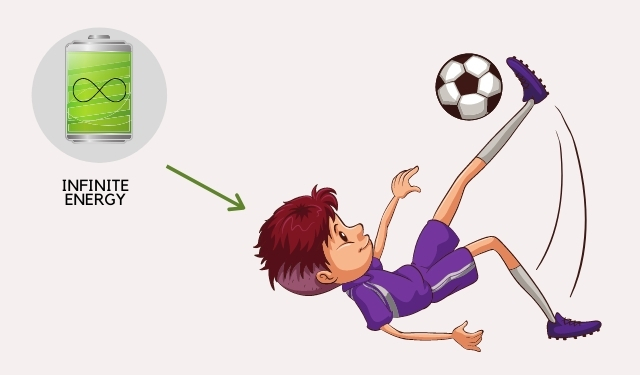
The author says that God is the source of all energy.
So let’s consider this to be true for a while.
According to the author, due to our lack of mental clarity or our confused mind, we drain a lot of energy.
When our energy is drained, we feel weak.
And when we feel weak all the time — in all situations — we feel that life is meaningless.
Doesn’t it happen?
Remember the times when you felt energetic while doing any work.
Now again remember the times when you felt low on energy.
We all have limited energy.
So why is it that we feel energetic while we do something we are passionate about and feel weak when we do something we don’t like?
The thing is:
When your emotions don’t align with your actions, you drain emotional energy.
According to the author, the only way to be full of energy is to realize that God is the source of all energy.
And you can stay energetic by drawing power from the Supreme.
Yes, it’s the power of faith.
Personally, I’m a bit skeptical about this. But also I’m not against this idea.
If you have faith in God and your emotions are aligned with your actions, you won’t feel exhausted mentally.
Physically, you may get tired.
But emotionally, you will become strong.
It’s kinda similar to what Stephen Covey talked about in his book The 7 Habits Of Highly Effective People.
There he said that one should exercise the four dimensions of life:
- Physical
- Mental
- Social
- Spiritual
If these 4 dimensions of your life are in tune with each other, you can become a beast full of energy.
The spiritual aspect of life is exercised by reading any holy book like Bible.
There are many others too. But since the author has taken many references from Bible, we’ll stick to Bible here.
The ultimate goal of spirituality is to realize our highest possibility. To be like God.
The question is:
How does one start his spiritual journey?
Simple…
Start gaining general knowledge about various fields.
Then start reading scriptures like Bible.
There are many scriptures, so do some research before you start reading any of them.
The author believes in Bible.
But you may not have the beliefs as the author.
So it’s up to you to explore and learn.
Personally, I doubt that if there can be a limitless source of emotional energy.
It’s a possibility though.
But it still sounds like a dream.
I don’t really know if it’s practically possible or not.
I recommend you do your own research to better understand spirituality.
Just like any field, spirituality is also pretty vast and subjective.
Lesson #3: Use prayers and affirmations to release the power of God through your thoughts
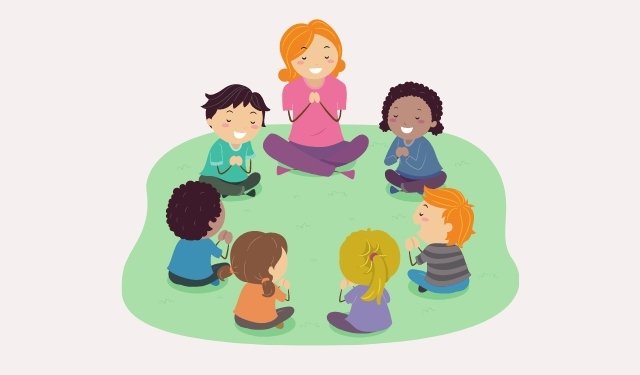
The author believes in the idea that the entire universe is vibrating.
Every atom is vibrating at some frequency.
That means we all are connected.
So according to the author, when you pray for happiness, you are sending vibrations into the universe — which is nothing but God himself.
Yes, it sure sounds fluffy.
I don’t support this idea of the universe vibrating at some wavelength and the prayers sending vibrations.
The laws of the nature of material nature have nothing to do with the mind.
Sure atoms and molecules constitute all the objects in the world.
Sure they all vibrate at some frequency.
But who cares?
It doesn’t have anything to do with our minds.
Our minds are not some materialistic objects that vibrate at some frequency.
And how can prayers send any vibrations?
I believe in the power of faith.
But connecting it with science in this way never makes sense to me.
What affirmations do is that they reinforce your beliefs.
Not all beliefs are bad. And there is nothing wrong with that.
Should you stop doing prayers then? No, I never said that.
Should you stop using affirmations? No, I never said that.
What I recommend is:
Draw clear boundaries between faith and science.
They mustn’t be mixed without logic.
Anyway, the author says and talks about how he has got results by praying to God.
So you can still experiment.
You don’t have to blindly believe anything.
There are so many big and interesting questions:
Is God within all of us? Are we all connected somehow?
Is there something more to the reality that our eyes can’t see?
The author didn’t answer such questions in the book though.
Furthermore, these questions are hard to answer.
There is still so much that needs to be discovered.
The best approach would be to find what works for you.
It’s a good idea to embrace both science and spirituality. But only with pure logic and by avoiding blind faith.
Faith can be good. But it must not come from the irrational part of your brain.
Most people think of religion as something of another world.
What I believe is that God is nothing but the highest possibility of our consciousness.
Even the author says that religion is highly practical and is not theoretical fluff.
He asks the readers to experiment and only then realize the power of prayer afterward.
Lesson #4: Most of our happiness or unhappiness is self-created
What if you had the key to limitless happiness?
Sounds like a dream, right?
Who doesn’t want happiness and satisfaction?
The good news is:
Well, you have!
Yes, you have the key to your happiness.
Allow me to explain.
“Happiness is a state of mind.”
Who decides whether we feel happy or sad?
You may say, “situations.”
But situations are only events. They depend on a lot of factors.
So whether you feel happy or sad is determined by your thoughts — your mind.
You might have seen people are always complaining about how ugly this world and how humans have destroyed such a beautiful planet.
On the flip side, some people live as if the earth is heaven. They cherish everything and feel grateful for what they have.
These are two dramatically different mindsets.
What is different here?
Mindset.
But the mind is pretty much the same for every person.
What’s really different is the content of the mind: Thoughts, Feelings, and Emotions.
If you simplify this: It’s just thoughts.
Every person has a mind.
But every mind has different thoughts.
Let’s conclude this:
If you are having happy thoughts, you will tend to be happy. (And vice-versa)
That means:
How you think about a situation or event determines how you will feel about it.
The choice is yours:
You can always find something positive in everything.
Or you can also find something negative in everything.
And what you will choose will determine the level of your happiness.
Now if you are an average person, you will think that “I will choose happy thoughts and focus only on the positive side every time.”
Wait a sec…
Don’t jump to conclusions just yet.
The catch here is:
Both happiness and sadness are important in life.
Otherwise, how would you know what happiness feels like when you haven’t experienced sadness in the first place?
If you believe in God, you may find that your faith in God will provide you a sense of peace and happiness — even when things are not going as expected.
Faith is not bad if used rationally.
Faith isn’t about defying logic. It’s about believing that “Things will become fine sooner or later. And that’s why there is no point in being sad all the time.”
Lesson #5: “Believe in God and expect the best”

Hmm… This may sound fluffy to you.
Even I don’t fully agree with it.
But the author believes that if you believe in the Bible, then God will help you get what you want.
It’s similar to the Law Of Attraction.
Which means:
Believe that you will get it — and you’ll get it eventually.
If you don’t believe in The Law Of Attraction, it’s not your fault.
I also doubt if it works or not.
But “beliefs” sure do work.
As we have discussed many times already, beliefs guide your mind.
When you believe that God is helping you, your mind retains a sense of peace, which then helps you to focus on your goal.
Then you don’t worry too much about the obstacles.
There is no guarantee here though.
One must never think that if you sit in one place and strongly desire something, then God will present himself and give you what you desire.
Yes, such things make nice fairy tales.
It doesn’t work in real life.
The author takes reference from the Bible, which suggests a similar thing — that you should expect the best.
Anyways, whether you believe in God or not, it’s your choice.
Whatever you believe, your experience is conditioned according to it.
For instance, if you strongly believe in the powers of God, then whenever you’ll achieve anything, you’ll think that God has helped you.
Maybe it was a random event. Maybe it just happened.
But you know, if you strongly believe in God, you’ll think that God has helped you. Period.
On the flip side, if you are someone who doesn’t believe that God exists, then you will think that you just got lucky and your hard work paid off.
Your beliefs affect your perception of life.
I recommend that you expect the best, but also do not ignore the worst.
That will help you fight any obstacles and improve the probability of your success.
Sound fair? Okay.
Lesson #6: Empty your mind and get rid of anxiety-ridden thoughts
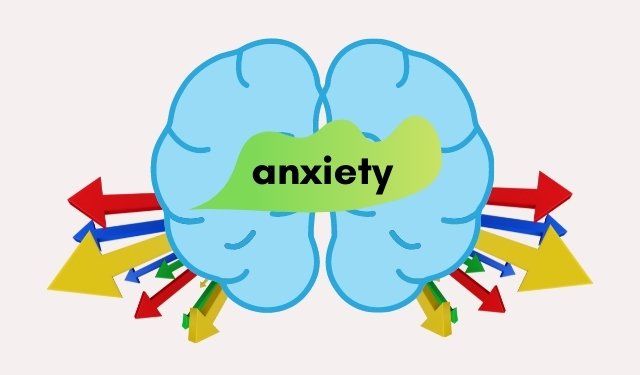
The author found that if you worry too much, it can even make you ill.
And it’s true indeed.
Our mental health affects our physical health. (And vice-versa)
For instance, when you exercise daily, your mind also stays fit and energetic — just like your body.
The question is:
How does one empty his mind?
Is it even possible?
Well, you can’t empty your mind the same way you empty a glass of water.
But…
There are a few techniques you can try:
The author recommends that you imagine your mind as if it’s an ocean. And there is a crazy storm. The huge waves are rising and striking each other.
Then imagine the agitated waves calming down and merging back with the huge ocean. And eventually becoming still.
This may help you calm your mind.
Another technique is to have a deep sleep.
By taking a good sleep, your mind can rest.
You can also try affirmations like:
- “God is with me and everything is watched by God. No problem is above the God.”
- “God helps everyone, so there is nothing to worry about.”
- “Since God is helping me, I’ll attain my dreams and goals, despite all the obstacles.”
- “Fear is nothing in front of the almighty.”
I don’t know if it will work for you. But when combined with faith, it may have positive results.
Personally, I don’t practice any affirmations.
I believe in the action based on reality — and not having blind faith in some supreme power.
If you are a Christian, you can also try reading a few lines from Bible before going to sleep at night.
This may help you realize the power of the almighty and bring you a sense of calm.
And if all the methods above don’t work, you can read:
Rewire Your Anxious Brain Summary
This summary will help you scientifically determine and fix the cause of anxiety.
Anxiety and fear are related.
When there is fear, there is anxiety too.
You can also try reading The Gift Of Fear Summary. It will help you realize that fear is an important aspect of the mind. And without fear, you may find yourself amid dangerous situations.
Why one should worry about destroying anxiety?
The answer is:
If you find yourself worrying too often, you should become cautious.
Because worrying can become a habit too.
And once a behavior becomes a habit, it’s hard to get rid of.
So pay a little attention to your anxiety patterns.
Maybe it’s not a big deal. But yeah, if you are worrying too often, you should investigate a little.
Keep in mind that you don’t have to start the vicious loop of anxiety:
“Hmm… I think I’m worrying” —> “Why am I worrying so much?” —> “How do I get rid of my worry?” —> “I worry so much about worrying. I’m stuck in a loop!”
That was an extra tip though. It hasn’t been discussed in the book.
The author recommends forcing positive thoughts over gloomy thoughts.
But I don’t recommend it for the same I don’t believe in The Law Of Attraction.
Our minds aren’t that simple. It’s hard to trick your mind for long.
Eventually, you’ll end up with more negative thoughts.
So try to keep things simple.
Although you are not your mind, most of your experience still happens within your mind.
Fooling yourself isn’t so easy.
Or is it?
On top of that, there are so many factors that affect your mental health.
So it’s not an easy task.
If you are thinking that just by muttering some affirmations, you will become a happy and successful person, then aren’t you being a bit too optimistic here?
The Power Of Positive Thinking Summary Infographic
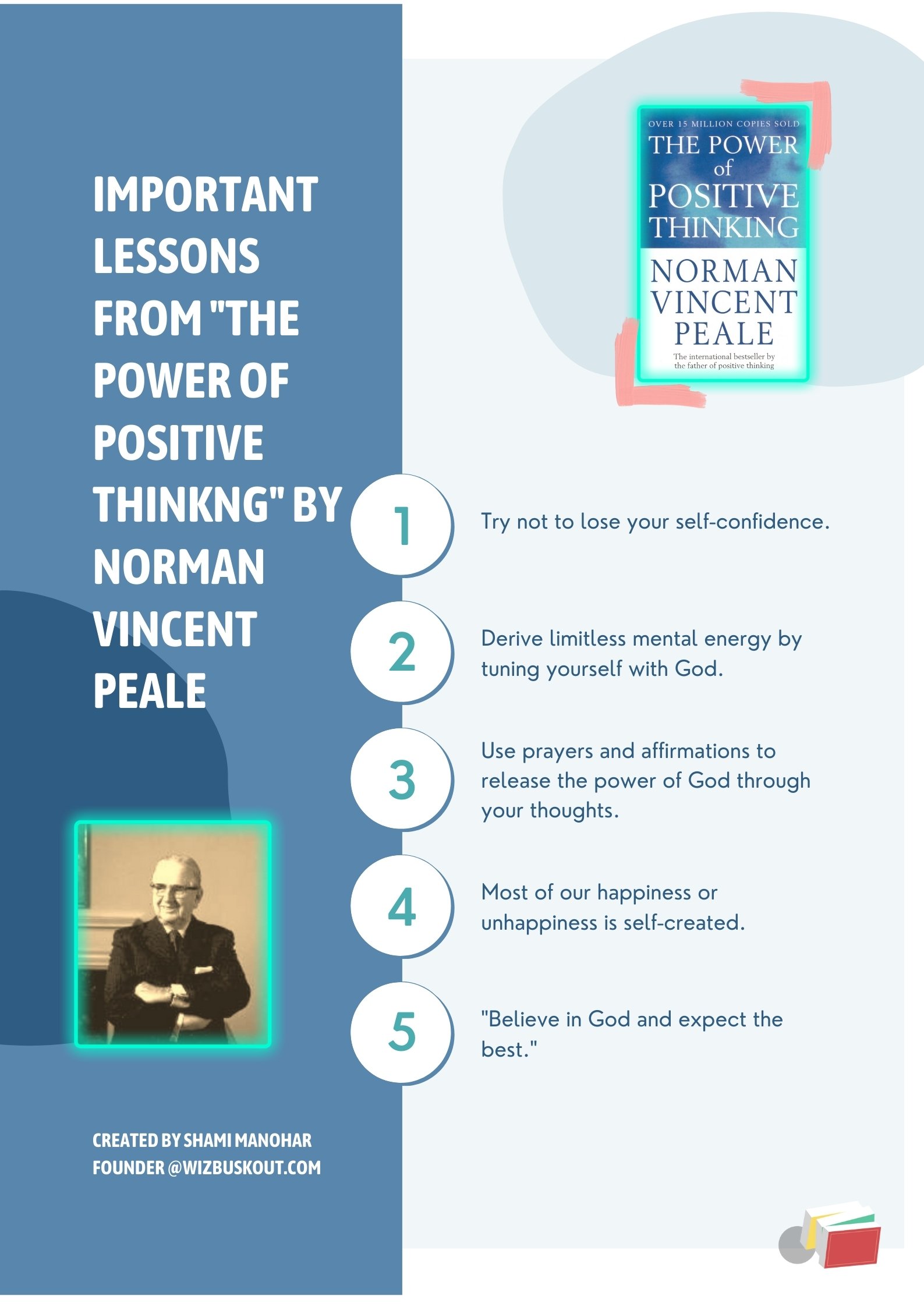
The Power Of Positive Thinking Review
Here is what I think about this book…
If you have even a little bit of faith in God, don’t think too much and grab this book.
But if you are an atheist and only trust science, you won’t enjoy reading this book.
Personally, it was a mixed experience for me.
I liked some areas while didn’t like the others.
There are areas where religion and science have a common ground. But they are not many.
I don’t think anyone would be reading this book twice just to believe in God.
If you already believe in God, you will pick Bible and simply read it anyway.
The author has shared his honest thoughts though. He has directly put what he thinks in words.
And I believe everyone has the right to believe in anything.
But since I always try to be practical, I didn’t find many actionable ideas in this book.
You are supposed to have faith if you go by the ideas presented in this book.
Also, the stories given in the book don’t sound true. They sound as if they are made out of imagination.
Most stories that the author has discussed sound like random tales of unknown people.
The author seemed heavily biased towards religion.
This book also becomes very repetitive after 3-4 chapters.
In conclusion: If you are a religious person, you will find this book interesting. But if you are not, you will be put off by the references taken from Bible.
Anyway, I embrace all the ideas, and I believe that even if this book takes many references from the religious book Bible, you can still learn some lessons from it.
Book Rating; 5.5/10
Now it’s your turn
Okay then…
I hope you enjoyed reading this book summary.
Feel free to write down your thoughts in the comments below.
And if you really liked it, feel free to share it with your friends.
Consider subscribing to my free email weekly newsletter to stay in touch the the latest and upcoming book summaries packed with practical knowledge.
